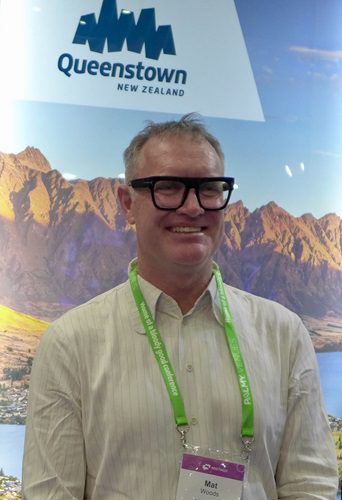 Queenstown’s sustainable credentials include an innovative hot-compost system and a plan to electrify the region. MEETINGS 2024 in Rotorua revealed that even the iconic old lake steamship TSS Earnslaw may be converted to a green power system.
Queenstown’s sustainable credentials include an innovative hot-compost system and a plan to electrify the region. MEETINGS 2024 in Rotorua revealed that even the iconic old lake steamship TSS Earnslaw may be converted to a green power system.
Mat Woods, chief executive of Destination Queenstown, expanded on some of these initiatives at MEETINGS 2024 in Rotorua, New Zealand, yesterday.
Woods told delegates about an innovative Queenstown local, Michael Sly, who has devised a simple, cost-effective way of reintroducing vital biodiversity to Queenstown’s environment. Sly converts hotel food waste into compost by mixing it with “wilding pines” (introduced Douglas Fir trees that threaten local ecology).
The invasive pines are mulched before being added to the mix. The process is called hot composting.
Sly’s team collects up to 20 tonnes of hotel food waste each month. This waste forms the basis of nutrient-dense soil that is used around the region for food growing and native plant nurturing.
“We have a very successful tourism industry in Queenstown,” Sly told Queenstown media platform Love Queenstown. “As part of that whole tourism experience, people are staying in hotels and eating food, so naturally, waste is created. When you can take advantage of that concentrated nutrient-dense food waste, it can become an amazing resource.”
Mat Woods also spoke of an initiative to electrify Queenstown. It would involve installing a new power cable between Kingston and Queenstown, with the aim of helping make the resort a world leader in electric tourism. If it goes ahead, the initiative would also create a world-class cycle trail following the route of the trenches used to lay the power cable.
Asked whether electrification plans extended to the iconic TSS Earnslaw – the picturesque ferry launched in the same year as the Titanic, which now putters around Lake Wakatipu carrying tourists – Woods said this also was under consideration.
Woods said that the ecological solution for the Earnslaw would probably not involve electrification. When the ship’s boilers were replaced shortly, a new propulsion system was likely to be installed, making the vessel more eco-friendly while remaining just as picturesque and appealing.
Written by: Peter Needham in Rotorua, New Zealand















